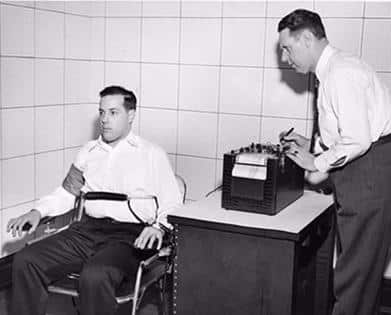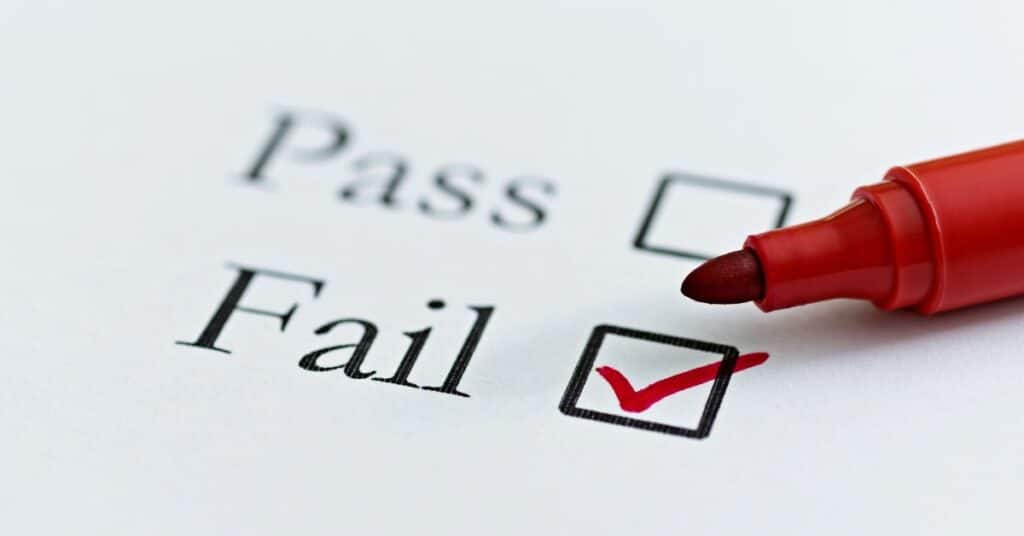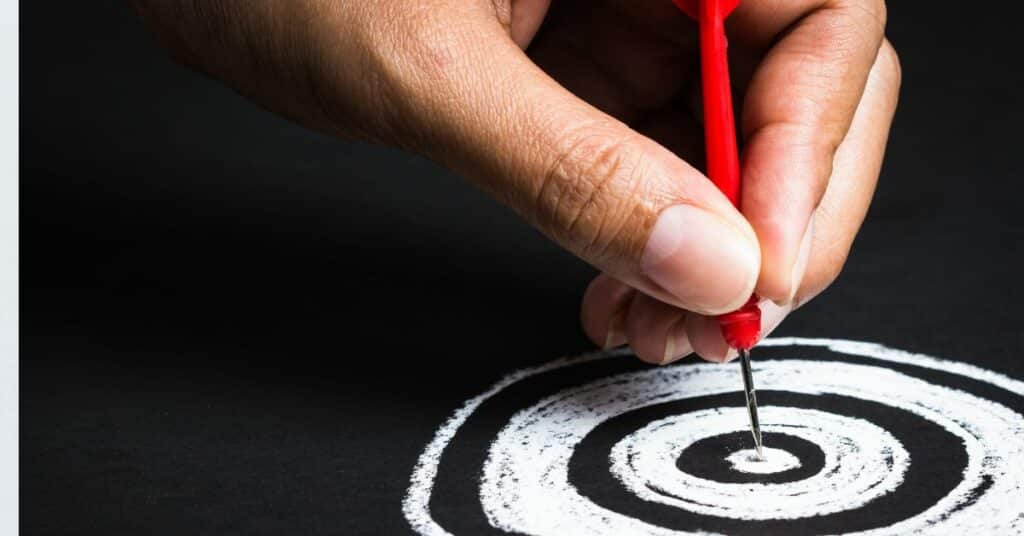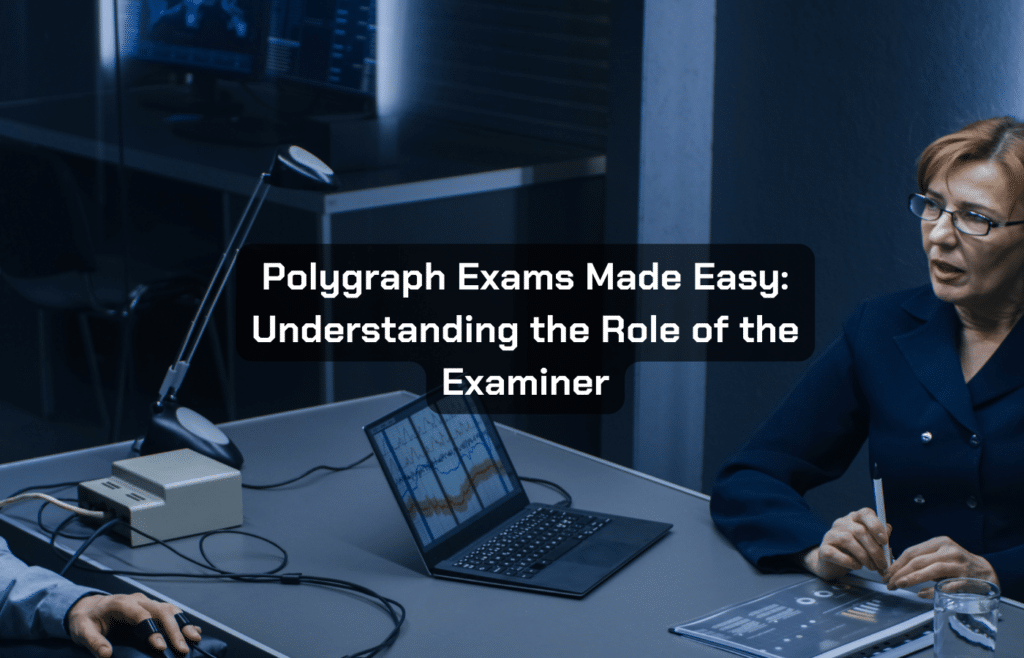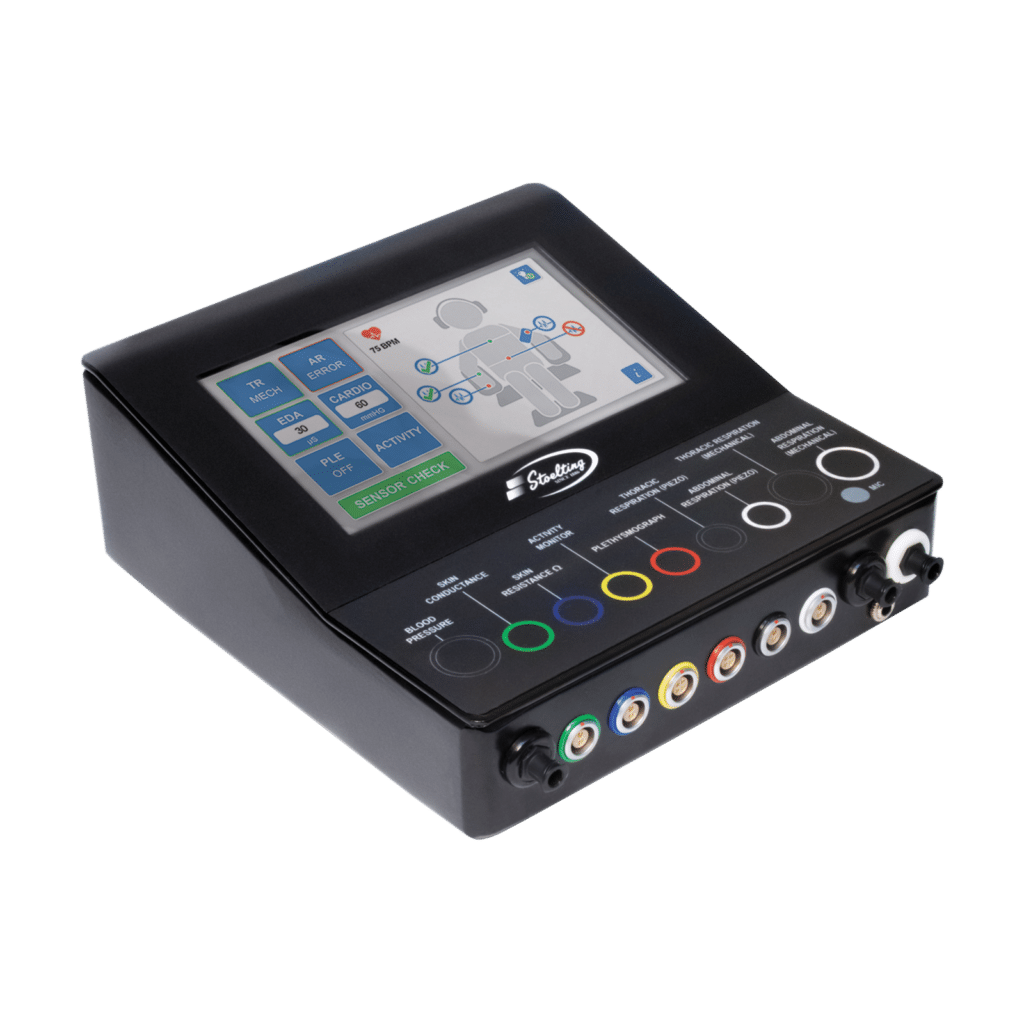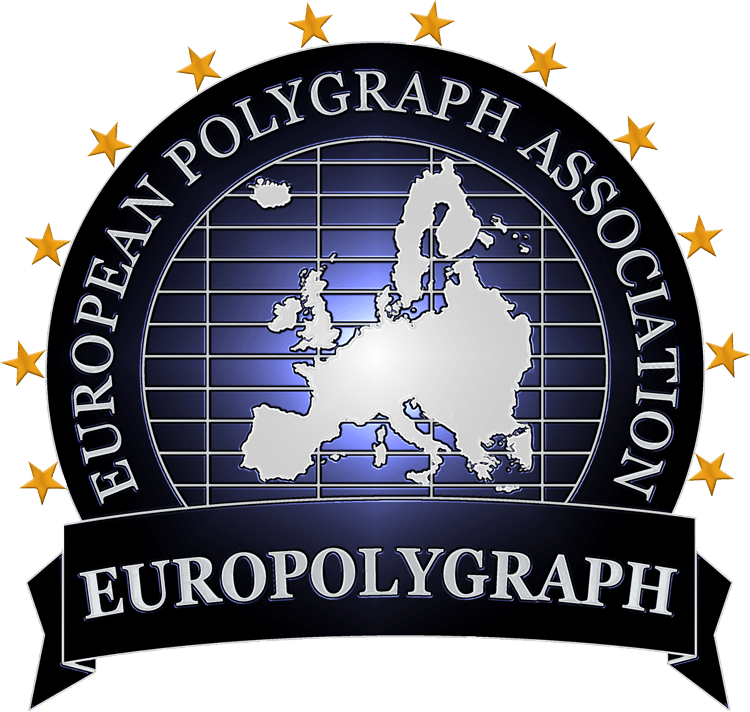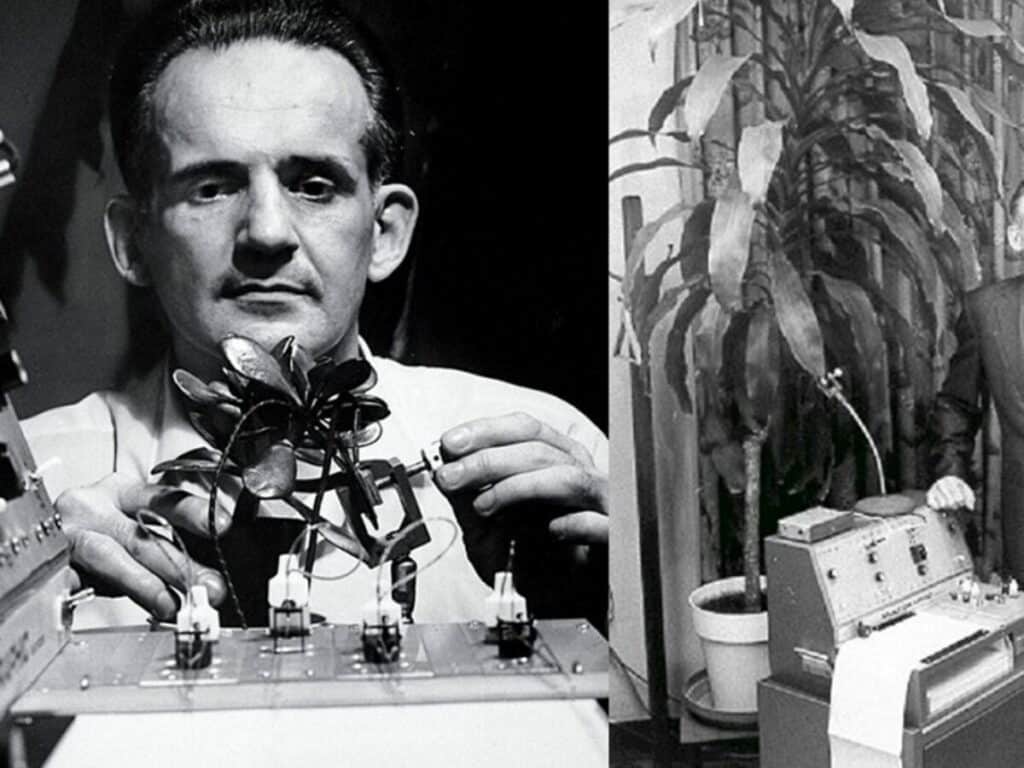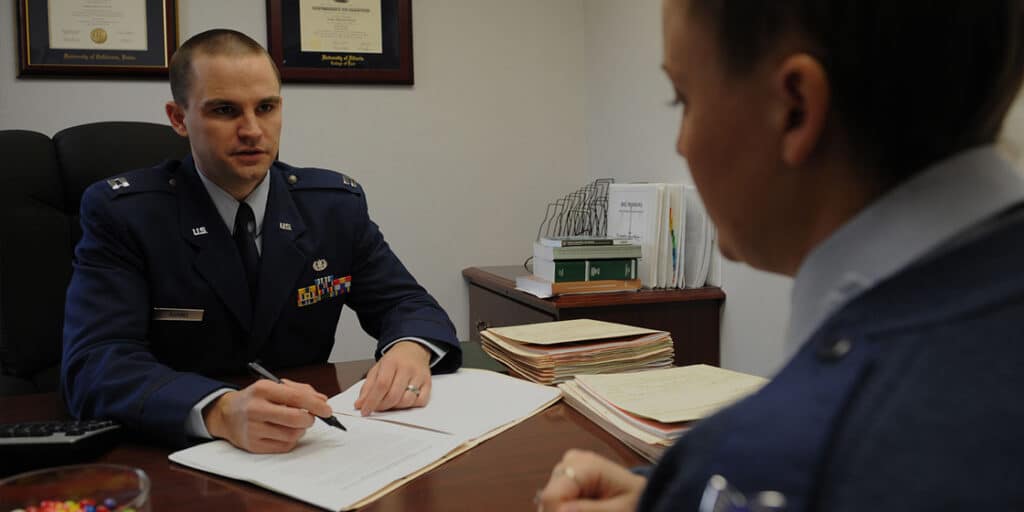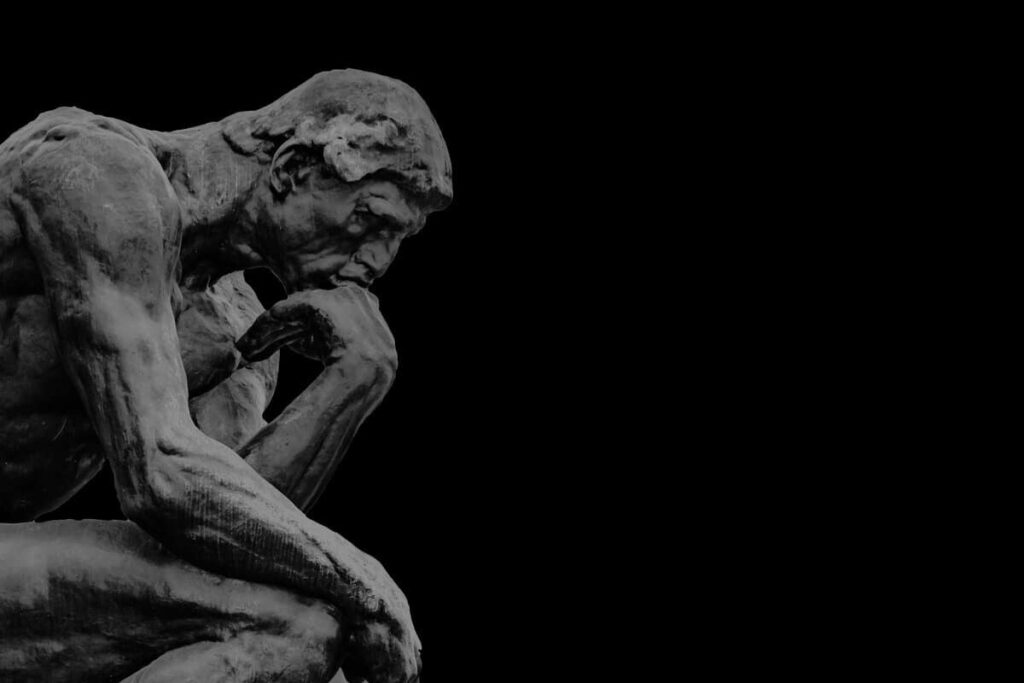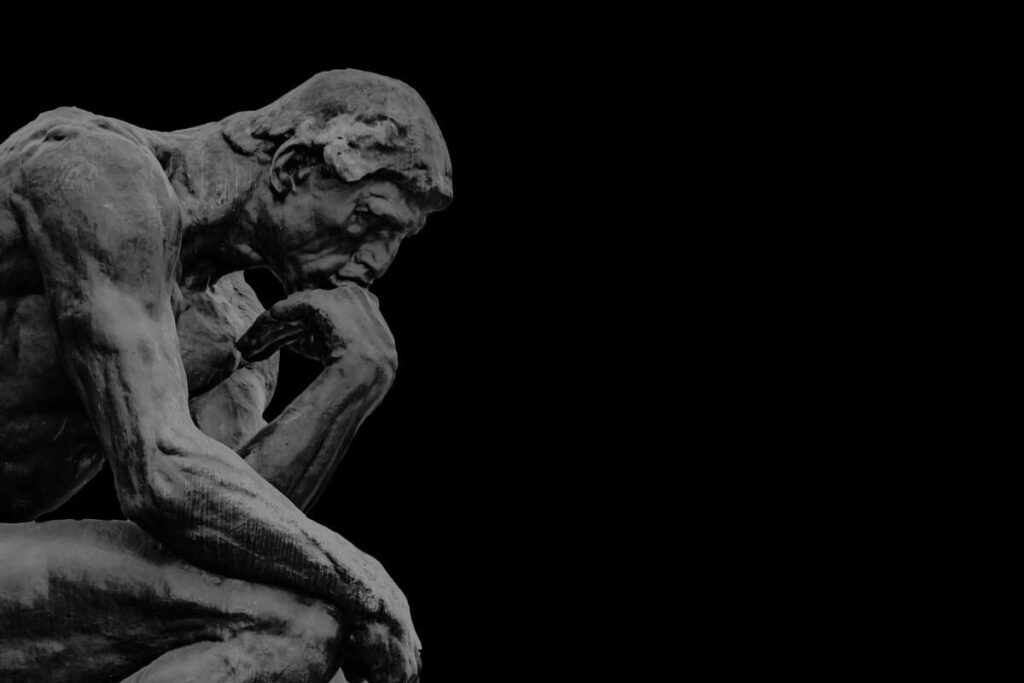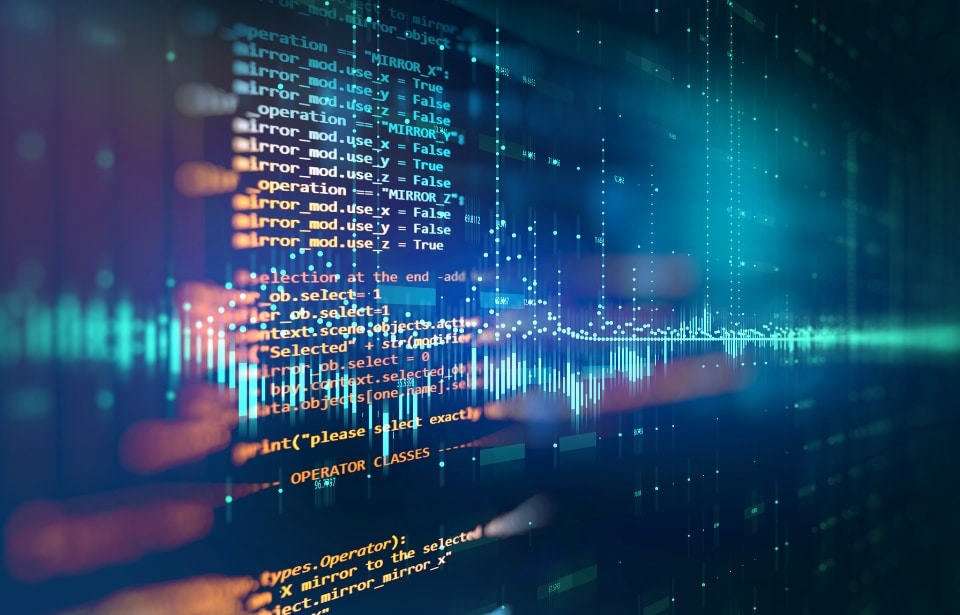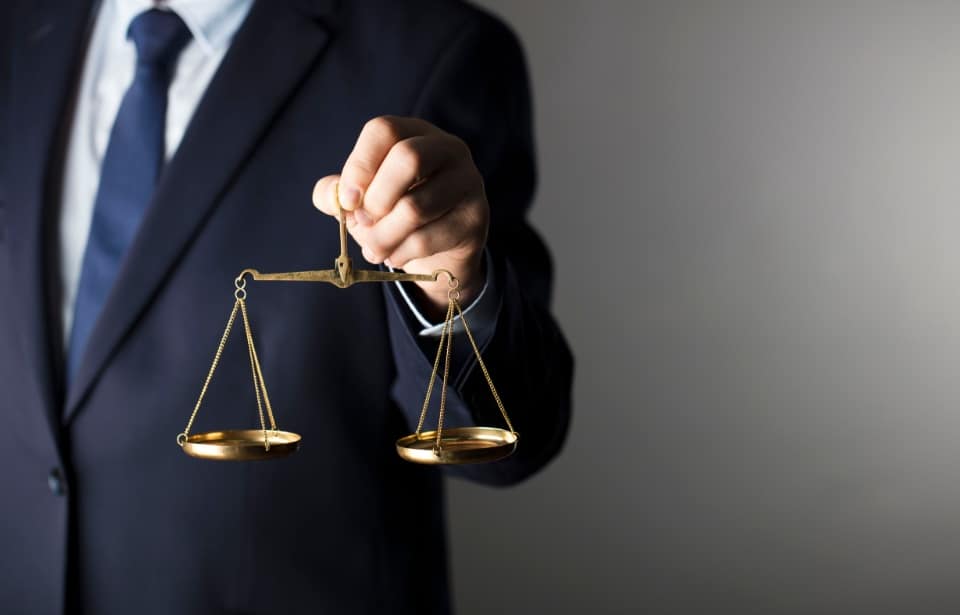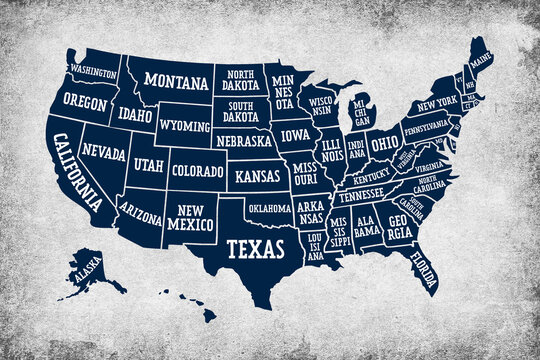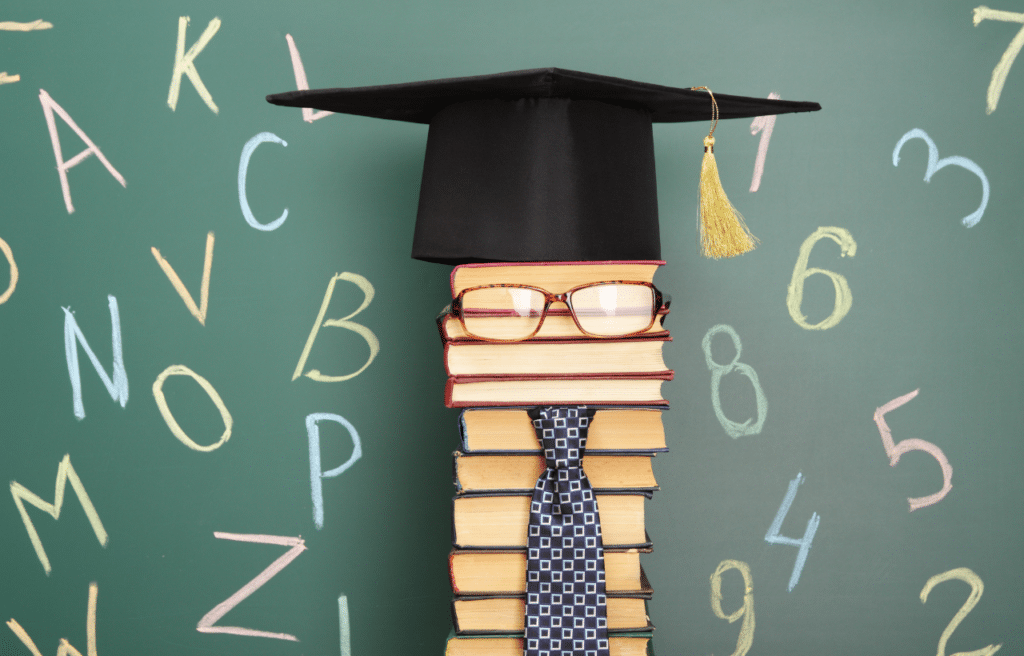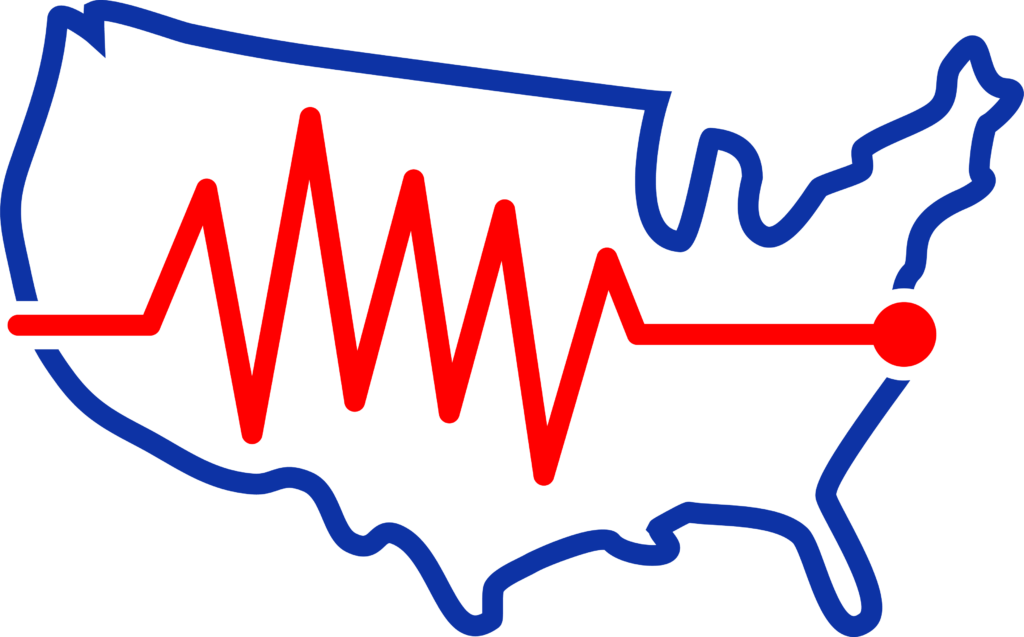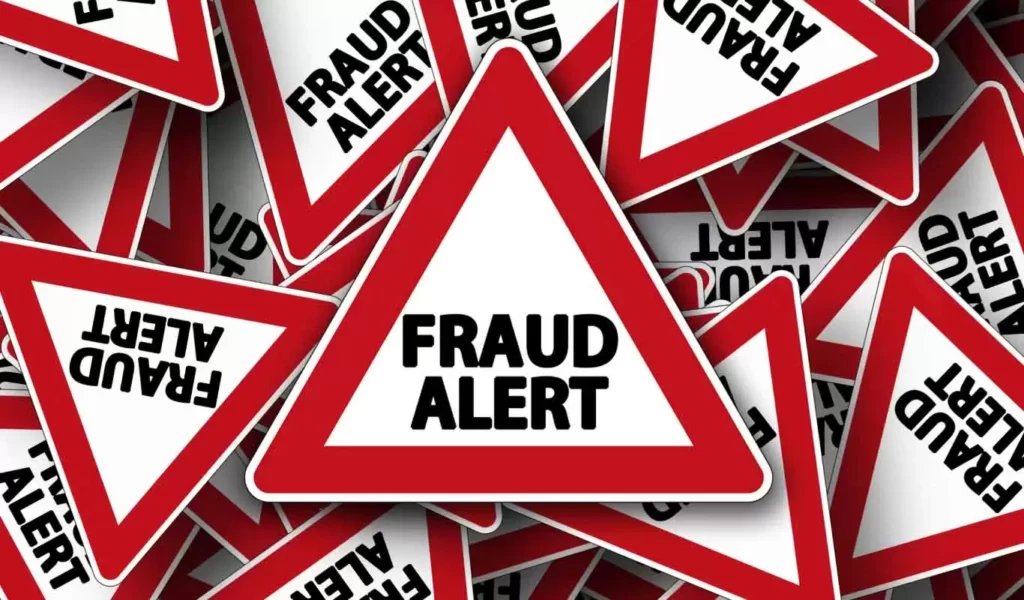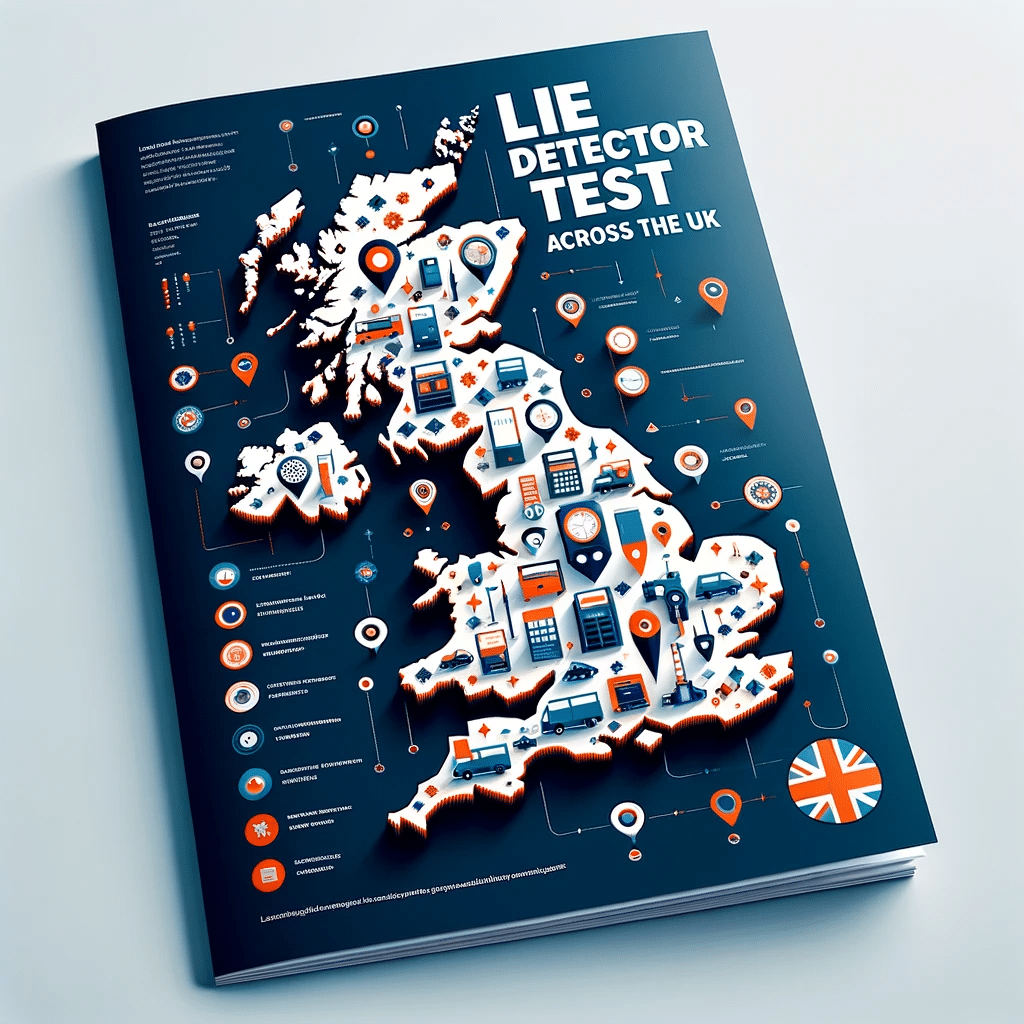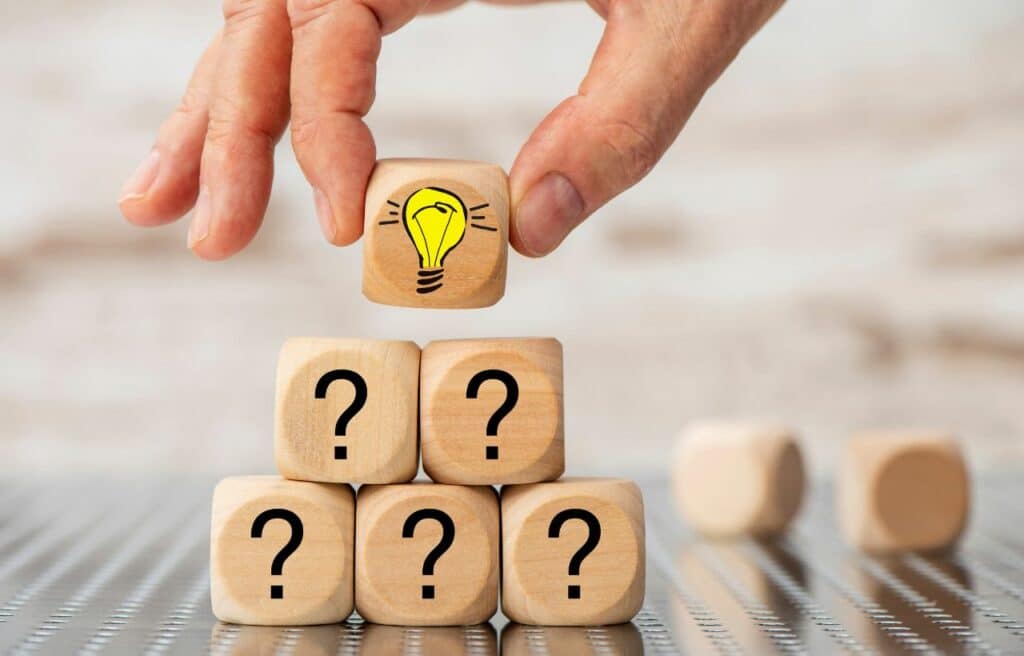Available Polygraph Training Courses
The table below presents a comprehensive list of polygraph training courses available across various locations in the United States for the year 2024. These courses are aimed at individuals who wish to become certified polygraph examiners. Each listing includes the start and finish dates, location, and the name of the institution offering the course.
List of Accredited Polygraph Training Institutions
Our comprehensive directory features accredited institutions offering professional polygraph training courses. These schools are recognized for their rigorous curriculum and commitment to excellence in polygraph examiner education. Whether you are beginning your career or seeking advanced training, our list provides a reliable starting point to find the best program that fits your educational needs and professional goals. Each institution is dedicated to upholding the highest standards of polygraph training, ensuring that graduates are well-prepared to conduct examinations with integrity and accuracy.
Marston Polygraph Academy – San Bernardino, CA
Marston Polygraph Academy offers comprehensive, accredited courses for aspiring polygraph examiners. Covering everything from basic techniques to specialized post-conviction offender testing, it equips students with skills and expertise using state-of-the-art Stoelting Elite Polygraph Instruments
International Academy of Polygraph – Fort Lauderdale, Florida
International Academy of Polygraphs offers an all-encompassing polygraph training program led by experienced professionals. Accredited by major associations, it offers unique partnership benefits with Broward College Criminal Justice Institute. Graduates emerge with specialist qualifications and skills, positioning them distinctively in the field.
American International Institute of Polygraph – Stockbridge, GA
AIIP's ten-week Examiner’s Basic Course equips students with skills for crime-related and pre-employment polygraph examinations. Leveraging curriculum from the Department of Defense Polygraph Institute, AIIP is recognized as a leading institution in polygraph examiner certification, with seasoned instructors and comprehensive training.
Academy for Scientific and Investigative Training – Philadelphia, PA
The Academy for Scientific Investigative Training provides a thorough education in deception detection. Students gain practical experience in various polygraph instruments and techniques, including the innovative Morgan Interview Thematic Technique. Graduates emerge as trained forensic psychophysiologists ready for diverse testing situations.
Texas Department of Public Safety Law Enforcement Polygraph School
The DPS and Texas Police Association offer specialized polygraph training for law enforcement applications. With the first school established in 1995, today's Texas DPS Law Enforcement Polygraph School is a respected faculty, accredited by major associations. The rigorous ten-week course and advanced training prepare dedicated law enforcement professionals for accurate polygraph examinations.
National Polygraph Academy (NPA) – Lexington, KY
Discover the elite realm of lie detection at the National Polygraph Academy. Offering accredited courses for law enforcement and private sectors, NPA sets the standard in truth verification training.
PEAK Credibility Assessment Training Center – Cape Coral, FL
PEAK Credibility Assessment Training Center excels in polygraph education, emphasizing high standards, ethical practices, and a commitment to excellence. With rigorous courses, esteemed faculty, and a focus on professional integrity, PEAK shapes future polygraph experts.
The Polygraph Institute – San Antonio, TX
2024 Training Opportunities Basic Examiner Course Dive deep into the fundamentals of polygraph examination with our Basic Examiner Course, available at the following dates and locations: February 5 - April 12 in San Antonio, Texas June 3 - August 9 in San Antonio,...
Accredited Polygraph Training Programs – 2024/2025
Polygraph examiners need to complete an accredited polygraph training program, and a bachelor’s degree may be required by some employers or for licensure, which might be a requirement in some states. Relevant degrees include a Bachelor of Science in Criminal Justice or majors in psychology, social science, and behavioral science. Additionally, some employers may require certification in certain specialties, which can be obtained through professional organizations. These professionals often have experience in law enforcement, psychology, or investigations.
To become a polygraph examiner, enroll in an accredited polygraph training program. Accredited by the American Polygraph Association, many of these programs take up to 4 months to complete. Keep in mind that some polygraph schools require you to have an associate or bachelor’s degree in a related field such as psychology, criminal justice or law enforcement. You may also have to have relevant work experience.
2024 Accredited Polygraph Training Programs in the USA: Pennsylvania (PA), Georgia (GA), Florida (FL), California (CA), Michigan (MI), South Carolina (SC), Kentucky (KY), Texas (TX), Virginia (VA)
Explore the most prestigious polygraph training programs accredited in 2024 within the United States. These elite institutions are recognized for their exceptional education and training standards in polygraph examination, endorsed by the American Polygraph Association.
- School Name: Academy for Scientific Investigative Training
- Director: Nathan J. Gordon
- Location: 1704 Locust St, 2nd Fl, Philadelphia, PA 19103, USA
- Contact: 215-732-3349 | [email protected]
- Website: www.polygraph-training.com
- Accreditation Valid Until: January 9, 2027
- School Name: American International Institute of Polygraph
- Director: Johnny “Robbie” Frederick
- Location: 277 Hwy 74 North, Suite #312, Peachtree City, GA 30269, USA
- Contact: 770-960-1377 | [email protected]
- Website: polygraphschool.com
- Accreditation Valid Until: January 10, 2026
- School Name: International Academy of Polygraph
- Director: Michele Hoff
- Location: 1835 S Perimeter Rd Ste 125, Fort Lauderdale, FL 33309, USA
- Contact: 954-771-6900 | [email protected]
- Website: www.deception.com/polygraph_school.html
- Accreditation Valid Until: March 7, 2026
- School Name: Marston Polygraph Academy
- Director: James Sackett
- Location: 1845 Business Center Dr., Suite 210, San Bernardino, CA 92408, USA
- Contact: 951-235-2264 | [email protected]
- Website: www.marstonpolygraph.com
- Accreditation Valid Until: January 3, 2026
- School Name: Michigan State Police Polygraph Program
- Director: Tiffany Franzosi-Watson
- Location: 7320 North Canal Road, Lansing, MI 48913, USA
- Contact:
- Website:
- Accreditation Valid Until: January 9, 2027
- School Name: National Center for Credibility Assessment
- Director: Zach Vaughn c/o James Waller
- Location: 7540 Pickens Avenue, Fort Jackson, SC 29207-5000, USA
- Contact: [email protected] | [email protected]
- Website:
- Accreditation Valid Until: April 20, 2025
- School Name: National Polygraph Academy
- Director: Pam Shaw
- Location: 1890 Star Shoot Parkway, Ste. 170-366, Lexington, KY 40509, USA
- Contact: 859-494-7429 | [email protected]
- Website: www.nationalpolygraphacademy.com
- Accreditation Valid Until: January 18, 2026
- School Name: NCTC Polygraph Institute
- Director: Adam Barton
- Location: c/o Dept. of Military & Veterans Affairs, Building 8-64 Fort Indiantown Gap, Annville, PA 17003-5002, USA
- Contact: 717-861-9306 | [email protected]
- Website: www.counterdrug.org
- Accreditation Valid Until: January 4, 2027
- School Name: Peak Credibility Assessment Training Center
- Director: Benjamin Blalock
- Location: 1490 NE Pine Island Rd. Unit 7B, Cape Coral, FL 33909, USA
- Contact: 239-955-0275 | [email protected]
- Website: peakcatc.com
- Accreditation Valid Until: January 10, 2026
- School Name: Texas Department of Public Safety Law Enforcement Polygraph School
- Director: Matt Hicks
- Location: 6100 Guadalupe, Building E, Austin, TX 78752, USA
- Contact: 512-424-5024
- Website: www.dps.texas.gov/polygraph/
- Accreditation Valid Until: September 6, 2026
- School Name: The Polygraph Institute
- Director: J. Patrick O’Burke
- Location: 8546 Broadway Suite 101, San Antonio, TX 78217, USA
- Contact: 210-202-9009 | [email protected]
- Website: www.thepolygraphinstitute.com
- Accreditation Valid Until: April 24, 2025
- School Name: Virginia School of Polygraph
- Director: Billy Thompson
- Location: 512 South Washington Hwy, Ashland, VA 23005, USA
- Contact: 804-332-6003 | [email protected]
- Website: virginiaschoolofpolygraph.com
- Accreditation Valid Until: January 10, 2026
These esteemed programs offer a blend of theoretical knowledge and practical expertise, ensuring graduates are well-equipped to conduct polygraph examinations with integrity and precision. For those interested in pursuing a career in polygraphy or enhancing their skills, these accredited institutions represent the pinnacle of education and training in the field.
Each of these programs offers a comprehensive curriculum designed to train individuals in the art and science of polygraphy. Whether you’re seeking a career in law enforcement, private security, or wish to specialize in lie detection, these accredited institutions provide the necessary education and training to excel in the field.
Disclaimer: Liedetectortest.com does not endorse or recommend any specific polygraph training programs or schools. All programs mentioned on our platform are fully accredited by the American Polygraph Association (APA). We advise all prospective students to conduct their own research and directly contact the educational institutions for more information before making a decision.
Comparative Costs of Polygraph Examiner Training Programs Across Leading Institutes
Cost of Polygraph Examiner Training in USA
Embarking on a career as a polygraph examiner involves specialized training, with costs varying by institution. The Polygraph Institute in San Antonio, TX, offers a basic course for $5,995, with an additional PCSOT course at $695. Marston Polygraph Academy in San Bernardino, CA, charges $4,895 plus a $100 non-refundable fee for their basic course, and $750 for PCSOT training. The International Academy of Polygraph in Fort Lauderdale, FL, lists their basic course at $5,000, with a $750 non-refundable fee, but does not offer PCSOT training. The American International Institute of Polygraph sets the price for their basic course at $6,000 and $600 for the PCSOT course. PEAK Credibility Assessment Training Center matches this with a $6,000 fee for the basic course and $725 for PCSOT training. Each school provides a pathway to becoming a qualified polygraph examiner, with additional training for those focusing on post-conviction sex offender testing.
Polygraph Training Costs Comparison
- School Name: The Polygraph Institute – San Antonio, TX
- Basic Polygraph Examiner Course Cost: $5,995.00
- PCSOT Course Cost: $695.00
- Course + Polygraph Equipment Price: N/A
- School Name: Marston Polygraph Academy – San Bernardino, CA
- Basic Polygraph Examiner Course Cost: $4,895.00 + $100 non-refundable registration fee
- PCSOT Course Cost: $750.00
- Course + Polygraph Equipment Price: Complete Package: Training and a Brand New Stoelting Elite Polygraph Instrument for $10,990.
- School Name: International Academy of Polygraph – Fort Lauderdale, FL
- Basic Polygraph Examiner Course Cost: $5,000.00 + $750 non-refundable registration fee
- PCSOT Course Cost: N/A
- Course + Polygraph Equipment Price: N/A
- School Name: American International Institute of Polygraph
- Basic Polygraph Examiner Course Cost: $6,000.00
- PCSOT Course Cost: $600.00
- Course + Polygraph Equipment Price: N/A
- School Name: PEAK Credibility Assessment Training Center
- Basic Polygraph Examiner Course Cost: $6,000.00
- PCSOT Course Cost: $725.00
- Course + Polygraph Equipment Price: N/A
- School Name: Virginia School of Polygraph
- Basic Polygraph Examiner Course Cost: $6,300.00 + $100 non-refundable registration fee
- PCSOT Course Cost: N/A
- Course + Polygraph Equipment Price: N/A
Rigorous Standards and Comprehensive Training: Shaping the Future of Polygraph Examiners
Polygraph training programs, as outlined in the Education Accreditation Committee (EAC) Standards, provide a rigorous and comprehensive framework for educating future polygraph examiners. These standards ensure that candidates receive a well-rounded education, covering essential aspects of polygraphy, and are adequately prepared for their roles in various professional settings.
Curriculum and Duration
A traditional polygraph education and training program must encompass at least 400 clock hours, distributed across various critical subjects. This training is typically spread over 10 to 17 weeks, ensuring that students receive in-depth exposure to each topic. The curriculum is designed to be intensive, with stipulations that students cannot earn credit for more than nine hours in a single day or more than six days in a week, emphasizing the program’s rigorous nature.
Core Subjects
The core curriculum covers a wide array of subjects essential for a comprehensive understanding of polygraphy:
- Law and Human Rights (8 hours): Students learn about the legal aspects applicable to polygraph testing, ensuring that their future practice respects legal boundaries and individual rights.
- APA Ethics, Standards of Practice, and Bylaws (4 hours): This module emphasizes the ethical considerations and professional standards governing the practice of polygraphy.
- History and Evolution of Psychophysiological Detection of Deception (8 hours): Candidates explore the development of lie detection methods, including the evolution of polygraph instruments and techniques.
- Scientific Testing (8 hours): This section focuses on the scientific principles underlying polygraph testing, including understanding sensitivity, specificity, and the statistical significance of test results.
- Mechanics of Instrument Operation (16 hours): Practical skills in handling and operating polygraph instruments are developed, ensuring examiners are proficient in setting up and conducting tests.
- Test Question Construction (32 hours), Test Data Analysis (40 hours), and Countermeasures (8 hours): These modules delve into creating effective polygraph questions, analyzing test data, and understanding countermeasures that might be employed by examinees.
- Practical Application of Polygraph/Mock Examinations (80 hours): A significant portion of the training is dedicated to hands-on practice, where students conduct mock examinations under supervised conditions to hone their skills.
Faculty and Facility Requirements
The EAC Standards mandate that a significant majority of the instruction be delivered in person by qualified faculty members. This direct interaction ensures that students receive guidance from experienced professionals and can engage in real-time discussions and clarifications. Furthermore, all training must occur in facilities that meet specific standards conducive to learning and practical application, underscoring the importance of a suitable educational environment.
Assessments
To ensure that students have adequately absorbed the material and are competent in polygraphy, the program includes a series of assessments. These consist of at least three written exams and a comprehensive final examination, testing both theoretical knowledge and practical skills.
In conclusion, the EAC Standards for polygraph training programs are designed to produce highly skilled and ethically aware polygraph examiners. Through a combination of intensive coursework, practical training, and rigorous assessments, graduates are well-prepared to enter the field of polygraphy, upholding the highest standards of professionalism and ethical conduct.
Program Director Requirements
The program director plays a crucial role in ensuring that a polygraph training program adheres to all set standards and acts as the primary liaison between the program and the EAC. The director must be a faculty member who possesses all necessary qualifications to meet the program’s mission goals and objectives. Additionally, they must meet the minimum requirements for providing leadership and administrative oversight according to the core polygraph education standards. This ensures that the program is not only compliant with EAC standards but is also led by someone with a comprehensive understanding and experience in the field of polygraphy
Importance of Qualified Faculty and Leadership
The emphasis on qualified faculty and leadership within polygraph training programs is vital for several reasons. Firstly, it ensures that students receive instruction from individuals with proven expertise and experience in their respective areas. This not only enriches the learning experience but also prepares students to handle the complexities and ethical considerations inherent in polygraph examinations. Secondly, having a qualified program director ensures that the program remains aligned with industry standards and evolves in response to new developments and best practices in the field.
In conclusion, the EAC Standards for polygraph training programs set a high bar for faculty qualifications and program leadership. This approach guarantees that future polygraph examiners are well-prepared, both theoretically and practically, to conduct examinations ethically, accurately, and effectively. It underscores the commitment to excellence and integrity within the profession, ensuring that polygraph examiners are equipped to uphold the highest standards of practice.
Begin Your Polygraph Training Journey
Ready to embark on an exciting career as a Polygraph Examiner? Visit our application page now to kick-start your journey. Our comprehensive training is waiting for you. Apply now and shape your future in this intriguing field
Accredited Polygraph Training Programs Outside the USA
While numerous reputable polygraph training institutions exist in the United States, there are also several esteemed programs across the globe. These international schools offer comprehensive training courses accredited by leading bodies such as the American Polygraph Association (APA), ensuring a standardized level of education and practice in the field of lie detector testing.
List of Premier Polygraph Training Courses Outside the USA:
- Behavioral Measures Polygraph Training Centre, UK: Located in Northumberland, England, this centre provides top-tier training under the guidance of experienced professionals in the field. It is known for its commitment to advancing polygraphy through scientific research and practical application.
- MINDEF Centre for Credibility Assessment, Singapore: This program offers specialized training for individuals in the defense sector, emphasizing the strategic importance of polygraphy in national security and intelligence.
- Korean Supreme Prosecutors Office Polygraph Academy, South Korea: Situated in Seoul, this academy is instrumental in training legal and law enforcement professionals in the use of polygraphy for investigative purposes.
- CCASS – Center for Credibility Assessment S.A.C., Peru: This center in Lima provides comprehensive training in polygraphy, catering to a wide range of professionals seeking expertise in lie detection techniques.
- Academia de Poligrafía de la Guardia Nacional, Mexico: This institution is dedicated to training members of the National Guard in polygraphy, enhancing their capabilities in law enforcement and security.
- Ibero-American Institute of Polygraphy and Forensic Sciences, Mexico: Based in Oaxaca, this institute offers extensive training in polygraphy alongside other forensic disciplines, contributing to a holistic approach to investigative procedures.
- Gazit International Polygraph School, Israel: Located in Tel Aviv, this school is renowned for its advanced polygraph training programs, providing education that combines traditional techniques with the latest advancements in the field.
- Latin American Institute for Credibility Assessment, Guatemala: This institute in Guatemala City is known for its comprehensive training programs that cater to a diverse audience, from law enforcement to private sector professionals.
- The Egyptian Academy for Polygraph Sciences, Egypt: Based in Cairo, this academy offers specialized polygraph training, contributing to the field of security and investigation in the region.
- School of Intelligence and Counterintelligence, Colombia: This Bogota-based institution provides polygraph training to members of the National Police of Colombia, emphasizing the role of polygraphy in intelligence and counterintelligence operations.
The Importance of Accreditation
Accreditation plays a crucial role in ensuring the quality and reliability of polygraph training programs. It signifies that a program meets specific standards in terms of curriculum, faculty qualifications, and ethical practices. For individuals looking to pursue a career in polygraphy, choosing an accredited program is essential for gaining the skills and recognition needed to succeed in the field.
Polygraph training programs around the world are dedicated to upholding the integrity and efficacy of lie detection methodologies. Through rigorous training and adherence to accredited standards, these institutions prepare professionals to contribute significantly to various sectors, from law enforcement to national security. As the field of polygraphy continues to evolve, the demand for skilled and ethically trained polygraph examiners is set to rise, highlighting the global importance of accredited polygraph training programs.
Unlock Your Future as a Polygraph Examiner: Comprehensive Guide & Resources
Ready to take the next step in your polygraph examiner journey? For in-depth information about the profession, insider insights, and more related topics, head to our comprehensive resource page. Start exploring now and shape your future in this fascinating field!
10 Misconceptions about Polygraph Exams
Does your employer want you to take a polygraph exam? If so, you probably feel nervous about what lies ahead. Learning you have to take a polygraph exam is an intimidating experience for anyone to wrap their mind around. You start wondering if the examiner will ask...
What to Expect from a Basic Polygraph Examiner Course
What to Expect from a Basic Polygraph Examiner Course Embarking on a Basic Polygraph Examiner Course equips students with a fundamental and comprehensive understanding of polygraphy, blending scientific, ethical, and practical elements crucial to the field. Here’s...
Are Polygraph Exams Accurate?
There's some controversy around polygraph science about exam results' accuracy. Speak to technology advocates, and they'll tell you the lie detector machine is up to 97% accurate at detecting deception. Detractors state it's far lower than that, with test results...
Choosing the Right Polygraph School: A Comprehensive Guide to Ensuring Your Success in Lie Detection
Choosing a polygraph school is crucial for a career in lie detection. Consider accreditation, curriculum quality, faculty expertise, and career support to ensure you select a school that aligns with your professional goals.
Are Lie Detectors Important for National Security?
A polygraph is an essential tool all agencies involved in national security rely on. The polygraph plays a significant role in how these organizations approach internal employee hiring and maintenance and field operations. The polygraph has been in operation...
Everything You Need to Know About Polygraph Exams for Sex Crime Victims
It's a sad fact, but sex crimes occur across America every day. Millions of men and women across the country are affected by sexual violence, with the statistics showing an assault occurs every 73 seconds in some corners of the United States. On average, there are...
What are the Forensic Standards for Polygraph Examiners?
Polygraphy is serious science. In all instances of polygraph exams, the outcome of the lie detector test can have serious consequences for the examinee. Whether the test is for pre-employment or employee screening, sex offender or victim testing, or criminal...
Understanding Voice Stress Detection – What Is It?
People frequently lie in their lives. Research shows most people lie every day. Typically, most of the lies they tell are insignificant, with no real consequence. For instance, telling your partner, they look good in that dress when you think the opposite is a...
Understanding the Employee Polygraph Protection Act
If you're an employer, you might think you have the right to polygraph new employees or your staff. However, that's not always the case. If you're an employee, you need to know you're right surrounding what your employer can ask of you concerning polygraph exams....
What are the Instruments Used in Polygraph Testing?
Are you going for a polygraph exam soon? You're probably wondering what the experience will bring. Undertaking a lie detector test can be a harrowing experience if you don't know what to expect. When you understand the procedure of the polygraph exam, the types of...
What to Expect on the Day of Your Polygraph Test
Are you expected to take a polygraph exam by your employer? If you work in the private sector, your employer must provide ethical motivation for you to undertake the test. Their reasoning for implementing the polygraph policy must comply with the regulations and...
Your Life Before Undertaking the Lie Detector Test
Did your boss tell the office he's discovered someone's embezzling from the client accounts? Or maybe he's noticed that someone's stealing inventory. He notifies the team he's called a polygraph technician into the office tomorrow morning to give everyone a...
William Moulton Marston – Progressing Polygraph Technology
Polygraph science started in the late 1800s. It's come a long way over the last 150 years of development, and today's polygraph devices are a true inspiration to the progress of lie detector technology over this period. The first electro-mechanical/analog devices...
William Marston and the Creation of DISC Theory in Polygraph Exams
William Marston is one of the most notable names in polygraph science. As a Harvard Ph.D. in psychology, Marston formed the foundation of American polygraph technology after inspiring John A. Larson to develop the world's first multi-functional lie detector device....
What are the Different Types of Lie Detector Machines?
The modern polygraph is a product of nearly 150 years of invention and innovation. Today's modern devices are nothing like the first machines put into service in the 1910s and 1920s. They operate on computerized systems, yielding remarkably accurate results. Along...
What’s the Difference Between a Polygraph and CVSA?
The industry of deception detection long relied on the polygraph as the sole tool for uncovering the truth in private and public-sector applications. Particularly, law enforcement found the introduction of the polygraph in the 1920s a useful way to prove their...
The Limitations of the Polygraph – Issues in Technology & Science
Discover the limitations of polygraph tests in exam scenarios, including countermeasures, pathological liars, and legal admissibility. Learn about the impact of technology on polygraph testing and its place in modern industry applications.
Common Missteps by Novice Polygraph Examiners and Their Impact
Explore 10 common mistakes by novice polygraph examiners. From inadequate prep to outdated methods, the right choice is key for accurate results.
John Larson – The Innovator of Polygraph Science
John A. Larson, a true innovator, developed the world's first accurate lie detector device, laying the foundation for the modern polygraph machine. Larson's interest in deception detection began with the work of William Moulton Marston, where he measured changes in blood pressure, pulse rate, respiration, and electrical skin conductivity. Larson advanced Marston's work, modifying an Erlanger Sphygmomanometer to record changes in blood pressure using a smoked paper drum and a kymograph. Larson published several papers on his instrument, which served as the foundation for Leonard Keeler's advancements in the 1920s and 1930s, earning Larson a spot in history as one of the biggest contributors to the improvement of criminology and criminal interrogation techniques.
Common Countermeasures Used in Polygraph Exams
Did your employer request you take a polygraph exam? When employees have something to hide from the examiner and undergo the exam process, many research countermeasures to use in the test. A countermeasure describes a method or technique used during the...
5 Reasons Why a Polygraph Test May Not Be Accurate
Have you heard the rumors online that polygraph exams might not provide accurate results? There are stories littered across the internet stating people have proven methods for beating the polygraph and that the lie detector test found them acting deceptive...
Why Do Polygraph Examiners Video Record the Session?
If you walk into the polygraph exam room and notice a video recording device, that's normal. No one's trying to spy on you; it's part of the examiners' processes to record your session. It might seem creepy when they turn on the camera, but we assure you...
Launch Your Career with Our Polygraph Examiner Internship Program
Embark on a career in lie detection with our internship for new polygraph examiners! Gain hands-on experience, mentorship, and access to the latest technology in a supportive environment designed to launch your career confidently. Join us to bridge the gap from training to professional success.
What are the Ethical Responsibilities of a Polygraph Examiner?
The polygraph examiner is responsible for carrying out the lie detector test. These individuals have a set of duties to the employer and the employee that they must balance before, during, and after the exam process. The examiner is a neutral party to the...
Understanding the Fight-or-Flight Response and the Lie Detector Test
Are you feeling anxious and nervous about your upcoming polygraph exam tomorrow? What's going on with your body, and why do you feel this way? You've done nothing wrong, and you're not the person responsible for stealing the inventory, so why should you feel...
The Role of the Examiner in the Lie Detector Test?
If your company requested you to take a polygraph exam or you're a candidate going for a pre-employment polygraph screening, you probably don't have any experience with it. The purpose of the "lie detector test" is to determine if you have the characteristics of...
The Career Path to Success for Polygraph Examiners
Ever considered a career in polygraphy? Our latest post guides you through the demanding but rewarding process of becoming a polygraph examiner. Learn about the years of study, experience required, and potential six-figure salary. Unveil how this career could take you around the world!
Standard Guide for Instrumentation, Sensors and Operating Software Used in Forensic Psychophysiological Detection of Deception (Polygraph) Examinations
Discover the significance of ASTM E2439-09(2016), setting the gold standard for conducting and interpreting polygraph examinations with precision and ethical considerations.
Quality Control in Polygraph Examinations: An Overview of ASTM E2031-99(2016)
Explore the ASTM E2031-99(2016) standard, the definitive guide ensuring the integrity and reliability of polygraph examinations for truth verification.
ASTM Standard Guide for Psychophysiological Detection of Deception (PDD) Examination Standards of Practice
Explore the ASTM E2062-11(2017) guide, the foundation for reliable and ethical polygraph testing, ensuring standardized PDD examinations.
Join the NSA Team: Seeking Diligent Polygraph Examiner to Uphold National Security
Explore a fulfilling career at the NSA, where roles like Polygraph Examiners play a vital part in our national security mission, ensuring the integrity of information and the safety of personnel and facilities.
Embarking on a Career as a Polygraph Examiner with the CIA
Explore a unique career as a CIA Polygraph Examiner, assessing credibility and safeguarding national security. Start your journey with comprehensive training and join diverse teams dedicated to the mission
Apprenticeships and Internships for Aspiring Polygraph Examiners
After completing their studies, aspiring polygraph examiners must enter an internship with a polygraph firm. During this time, you’ll get on-the-job training from qualified polygraph examiners, following them in the field and shadowing their work. After completing...
Behind the Scenes: The True Life of a Polygraph Examiner
Explore the real world of polygraph examiners beyond Hollywood's glamor— from corporate screenings to high-stakes government roles. Discover the journey to becoming a sought-after expert.
Stoelting CPS Elite Polygraph Systems
Elite Polygraph redefines truth verification with Stoelting’s cutting-edge Fusion software and hardware, offering unparalleled precision and reliability. With a unique built-in display and state-of-the-art electronics, it sets a new benchmark in polygraph technology.
EuroPolygraph: European Polygraph Association EPA Elevating the Standards of Lie Detection Across Europe
EuroPolygraph stands as a premier non-profit in Europe for lie detection, boasting over 500 members across 35 countries. It emphasizes ethical practice, advanced training, and global collaboration in the field of Psychophysiological Detection of Deception (PDD).
Who Suits a Career as a Polygraph Examiner?
Polygraph careers demand analytical minds, ethical integrity, and strong communication skills. Ideal candidates are unbiased, rule-abiding, and adept at making others comfortable in high-stress situations. It's about more than just reading results; it's about respecting and understanding people.
Unveiling the Enigma of Cleve Backster: From Polygraph Pioneer to Plant Whisperer
Cleve Backster, an American interrogation specialist, gained considerable fame and controversy for his pioneering work in polygraph (lie detector) technology and his subsequent research into what he termed "primary perception," involving plants and other living...
Understanding Artifacts in Polygraph Testing
Artifacts in polygraph tests, like body movements or external noises, can skew results. It's crucial for examiners to identify and exclude these to maintain the test's accuracy and reliability.
The Air Force Modified General Question Test (AFMGQT): Revolutionizing Polygraph Examination
The Air Force Modified General Question Test (AFMGQT) is a tailored polygraph method, incorporating various question types for nuanced security examinations within the Air Force, as detailed by Senter, Waller, and Krapohl in 2008.
Navigating the Nuances: The 7-Position Scale in Polygraph Testing
The 7-position scale revolutionizes polygraph testing with a nuanced approach, enabling precise analysis of physiological responses to uncover truth in the complex realm of deception detection.
The Efficacy of the 3-Position Scale in Psychophysiological Detection of Deception
The 3-position scale simplifies PDD analysis by reducing the traditional 7-point system to a -1, 0, +1 scale, focusing on the link between strong physiological responses and significant stimuli, enhancing clarity and efficiency in polygraph testing.
How Much Do Polygraph Examiners Earn?
How Much Do Polygraph Examiners Earn? Are you interested in a career as a polygraph examiner? It's a rewarding and satisfying job. You'll meet plenty of people from all walks of life and see the brighter and darker side of the human psyche. It's a long path...
How Software Changed the Lie Detector Test
Explore the transformative journey of lie detection technology from mechanical marvels to digital accuracy. Delve into the pioneering work of Larson and Keeler, the digital revolution in the 1990s, and the cutting-edge advancements brought by software and AI. Uncover the controversies, the leaders in lie detection software, and the future implications of AI in uncovering deception. A must-read for enthusiasts and professionals in the field of lie detection.
Do I Need to Go to University to Become a Polygraph Examiner?
Do you think a career as a polygraph examiner would be a good fit for you? If you have a passion for uncovering the truth and enjoy working with people face-to-face, it might be worth considering for your profession. A polygraph examiner is a sought-after...
Can I Trust the Polygraph Examiner?
Concerned about trusting a polygraph examiner during your test? Understandably, the thought of undergoing a lie detector test can be daunting. However, polygraph examiners are trained professionals bound by ethical standards. Their goal is not to pry into your personal life but to conduct the test fairly and accurately, focusing on specific issues relevant to the examination. Trust in their professionalism and the confidentiality of the process.
John E. Reid – The Father of Polygraph Questioning
Explore the transformative impact of John E. Reid on polygraph technology, with his "Reid Technique" setting the gold standard in interrogation practices. His innovative approach significantly advanced the field, enhancing the accuracy and efficacy of lie detection methods.
Preventing Intimidation During a Lie Detector Exam
Undergoing a polygraph test can be daunting, but understanding the process and the examiner's role can ease concerns. In the U.S., examiners adhere to strict ethical guidelines, ensuring the test is conducted professionally without intimidation. It's crucial to report any misconduct to maintain the integrity of the process.
Lie Detector Tests – What Physiological Responses Occur When We Lie?
Polygraph tests can be anxiety-inducing, but understanding the science behind why we lie and the body's response can help. Studies reveal frequent lying in conversations, often for self-preservation or to avoid reprimand. Lying triggers a stress response in the body, detectable by polygraphs, making it challenging to deceive the test.
Can You Deceive Polygraph Testing?
Facing a polygraph test can be nerve-wracking, not due to guilt but the fear of privacy invasion. Despite myths, beating a polygraph, especially by controlling stress responses, is highly unlikely. Professionals assert its accuracy, focusing solely on relevant issues, not personal secrets. Understanding the process can alleviate fears, emphasizing honesty and routine maintenance before testing. Missteps like changing daily habits can inadvertently trigger false signals. Transparency and consistency are key to navigating the polygraph without undue stress.
How to Uncover Pathological Liars with Polygraph Services
Uncovering pathological liars, like the case of "The Liver King," reveals the complexity of deception. Pathological liars differ from those telling white lies or compulsive liars by their lack of guilt and belief in their falsehoods. Polygraph tests, while effective for many, may not always detect pathological liars due to their unique psychological makeup. The fight-or-flight response, typically triggered by lying, may not activate in them as they might not perceive their lies as deceitful. Thus, the efficacy of polygraph tests in such cases can vary, heavily reliant on the skill of the examiner to interpret subtle cues beyond physiological responses.
A Brief History of the Lie Detector Test
From ancient methods to sophisticated technology, the polygraph has evolved significantly. Originating with simple techniques in ancient China, it transformed through pioneers like Mosso, Larson, and Keeler. Today, digital advancements enhance its accuracy, making the polygraph a key tool in truth detection despite debates on its reliability.
Understanding Security Clearance Levels in the U.S. Government
Delve into the intricacies of U.S. Government security clearances with our comprehensive guide. Understand the different levels - Confidential, Secret, and Top Secret, and their significance in national security. Learn about the rigorous process and periodic reinvestigations essential for maintaining these clearances.
Case Studies: Notable Espionage Cases and the Role of Polygraph Testing
Dive into the intriguing world of espionage with a focus on the Aldrich Ames, Ana Montes, and Robert Hanssen cases. Explore how these spies evaded detection and the subsequent enhancements in polygraph testing and counterintelligence methods.
Polygraph Exams for Government and State Security Clearance
Applying for a job with the FBI or CIA involves a stringent vetting process, including security clearance and a polygraph test. This is to ensure candidates are reliable and trustworthy. The vetting includes background checks, interviews, reference checks, and lie detector tests to assess honesty and integrity.
Why Educational Institutes May Need to Consider Polygraph Testing
Are you an administrator at an educational facility? Hiring new staff is challenging whether you work at an elementary school, high school, or college. A teaching position requires patience, responsibility, and qualifications. Unfortunately, it's easy for...
Post Conviction Sex Offender Polygraph Testing
PCSOT enhances public safety by validating risk management and treatment of convicted sex offenders. It uses evidence-based polygraph exams to assess offenders' compliance and history, ensuring fair and effective rehabilitation in community settings.
List of Polygraph Associations Across the USA
Discover the intricate network of Polygraph Associations across the USA in our comprehensive guide. Delve into the roles, services, and contact information of these organizations, vital in upholding the standards and ethics of lie detection. Explore regional and national bodies integral to the American polygraph community.
How to become a Polygraph Examiner
Discover the path to becoming a polygraph examiner, from understanding the foundational principles of polygraphy to completing specialized training. Learn about the qualifications, certifications, and hands-on experience required to navigate this unique profession, ensuring accuracy and integrity in lie detection.
Unpacking the Best Polygraph Manufacturers: Axciton, Lafayette, Stoelting and Limestone.
Explore the Best Polygraph Manufacturers: Axciton, Lafayette, Stoelting, and Limestone. Our in-depth analysis offers insights into their cutting-edge technology, unique features, and how they lead in lie detection innovation. Stay informed about the top choices in polygraph technology with our expert review.
Understanding TS/SCI Clearance and Polygraph Requirements
Explore the essentials of obtaining and maintaining a TS/SCI clearance with a polygraph in our comprehensive guide. Learn about the clearance levels, polygraph purpose, the clearance process, and tips for addressing concerns. Discover key insights into this critical national security requirement.
Announcing Our New Classifieds Section for the Polygraph Community
We're thrilled to launch our Classifieds section – a specialized marketplace for all things polygraph. This is the perfect place for accredited polygraph examiners and enthusiasts to buy and sell equipment, explore career opportunities, and network with peers. Our platform is designed specifically for the polygraph community, ensuring a professional and relevant experience. Whether you're upgrading your gear or advancing your career, our Classifieds section is your go-to resource.
Unqualified Polygraph Examiners ruin the Reputation of the Lie Detector Industry
The lie detector test's accuracy hinges on the examiner's skill, not the machine itself. Ensure your polygraph examiner is APA accredited for reliable results.
Understanding Inconclusive or False Polygraph Outcomes: Insights and Actions
Facing a false or inconclusive polygraph result can be daunting, especially when you're truthful. Understand that polygraphs aren't infallible, often affected by physiological and psychological factors unrelated to deception. Preparation, awareness of test limitations, and maintaining calm are key. Remember, a misleading polygraph doesn't define your honesty, and knowledge about its flaws empowers you to navigate this challenging scenario with confidence."
Understanding Inconclusive Polygraph Results
Have you ever faced a scenario where a test doesn't yield a straightforward answer? This situation can be especially perplexing when dealing with a tool like the polygraph, known for its role in measuring honesty but sometimes producing ambiguous outcomes. An...
The Evolving Role of Lie Detector Tests in Australia
Exploring the surge of polygraph testing in Australia, from aiding legal investigations to resolving personal disputes. Modern advancements enhance accuracy, yet ethical considerations persist. This tool's growing role reflects Australia's evolving landscape of truth verification.
Unveiling the Truth: Lie Detector Test Services in the UK
Discover the power of truth with Lie Detector Test UK. Confidential, accurate, and nationwide services to resolve trust issues and personal disputes.
EyeDetect Technology: A New Frontier in Lie Detection or a Step Towards Controversy?
EyeDetect by Converus is a novel lie detection technology that diverges from traditional polygraph methods. Here's an overview of how it functions, its various applications, and the debates surrounding it: How EyeDetect Works Cognitive Load Measurement: EyeDetect...
Lafayette Instrument Company: Revolutionizing Polygraph Technology with LX6 and PARAGONX
Lafayette Instrument Company leads in polygraph technology with the LX6 and PARAGONX, offering advanced features like 10 data channels, superior connectors, and cutting-edge software. These systems provide unparalleled accuracy and ease of use in credibility assessment for global security organizations.
Acquaintance Tests in Polygraph Examinations
Acquaintance tests in polygraph exams are vital for discerning truth from deception, adapting to each examinee's needs. They familiarize subjects with the process, assess physiological responses, calibrate instruments, and evaluate cooperation. Choices like the Federal Acquaintance Test and True Blue Control Test are tailored based on the examinee's background and the examiner's expertise.
Choosing a Polygraph Lie Detector Test Examiner Guideline
Ensure your US polygraph examiner is APA-accredited for reliable results. Beware of non-accredited individuals and prioritize those committed to ongoing training and using the latest technology. Avoid hidden fees by seeking all-inclusive, fixed quotes.
How Can I Tell When Someone is Lying? – Part 3: The Freudian Slip
In May 2022, former US president, George W. Bush, made an infamous “Freudian slip.” In a speech held at Southern Methodist University in Dallas, Texas. Bush was delivering a prepared speech for him, “George W. Bush Foundation,” on the horrors of the Ukrainian war...
How Can I Tell When Someone Is Lying? – Part 2: A Guide to Micro Expressions
We've all had those situations where our BS radar is on full alert when talking to someone we just met. They're telling us about something that seems so fantastical it sounds like a load of baloney. Regardless of the theme of their story, something doesn't seem...
How Can I Tell When Someone Is Lying? – Part 1: A Guide to Body Language
How can you tell if someone is lying to you? Is it even possible to discern this behavior? The reality is people tell lies and tell them all the time. There's a big difference between an innocent lie that doesn't influence the trajectory of other people's lives and...
What Is the Control Question Technique? & Other Methods
Explore the intricacies of the Control Question Technique and other polygraph methods used to discern truth in investigations. Learn how these techniques, developed over decades, aid examiners in identifying deception, enhancing the reliability of lie detection in various contexts.
How Do Polygraphs Services Work? – A Guide to Hiring Professionals
Explore our guide on hiring polygraph pros! Understand the polygraph process, find qualified examiners, and ensure ethical, legal compliance for your needs. #PolygraphExperts #LieDetectorServices
What Happens to the Body when we Lie on a Polygraph?
Explore the involuntary physiological reactions that occur when someone lies during a polygraph test. From increased heart rate and blood pressure to rapid breathing and sweating, learn how the body's natural stress response can reveal the truth behind the words.
Are Polygraph Results Admissible in Court?
Are polygraph results admissible in court? Can law enforcement or your employer use the outcome of a polygraph exam against you in your case? It's a touchy topic, and many assume there's no way the court will use polygraph results against them. However, this may...
5 Things that Contaminate Polygraph Exam Results
Discover the top five factors that can compromise the accuracy of polygraph exam results. From examiner bias and improper questioning techniques to the examinee's physiological conditions, learn what can skew the outcomes and how professionals work to mitigate these influences for reliable lie detection.
Why Do the NSA, FBI, and CIA Use Lie Detector Tests?
Uncover why top agencies like the NSA, FBI, and CIA rely on lie detector tests for security clearances and investigations. Learn about the strategic role of polygraphs in safeguarding national secrets, vetting personnel, and the psychological edge they provide in intelligence gathering.
The Alabama Polygraph Examiners License: A Comprehensive Guide
Interested in becoming a polygraph examiner in Alabama? Dive deep into the comprehensive licensing process, from qualifications to reciprocity agreements. Stay updated and informed with Alabama's strict regulations for polygraph professionals. Read our full guide for details!
What Behavior Does a Polygraph Examiner Look for in a Lie Detector Test?
Are you taking a polygraph exam in the next few days? If so, you're probably wondering how it works. The lie detector test involves two primary elements – the device and the examiner. Understanding how they operate and what they're looking for during the test gives...
The Impact of Tears: How Crying Can Influence a Polygraph Test
Emotions play a significant role in our lives, dictating our reactions and influencing our decisions. Tears, in particular, often serve as an external representation of our emotional state. However, while tears might help heal the heart, they might just pose...
What Can Cause A False Positive On A Polygraph?
A polygraph, commonly referred to as a lie detector test, is a device used to measure an individual's physiological responses to questions in an attempt to determine the truthfulness of their answers. Though polygraphs boast an accuracy rate of 80% to 90%, false...
Understanding the Key Components of a Polygraph: Pneumograph, Cardiosphygmograph, Galvanograph, and Kymograph
The polygraph is a complex device used for lie detection. Understanding its components and how it works can help alleviate pre-exam anxiety. Learn about the history, components, and accuracy of the polygraph, as well as the future of AI-driven polygraph systems.
Using Polygraph Exams in Pre-Trial Questioning
If you're a defendant in a case, your attorneys will meet with the presiding judge to iron out the details before you go to court. This pre-trial phase occurs in both civil and criminal proceedings, giving the defendant a chance to negotiate a satisfactory outcome...
How Do Mental Health Problems like Depression or Bi-Polar Affect Polygraph Testing?
Are you dealing with mental disorders? Do people with anxiety, depression, bipolar, or related mental illnesses need to be wary of taking a polygraph exam? Can your issues affect the outcome of the lie detector test? Mental health problems affect people's lives...
Should I Be Nervous about My Polygraph Test?
Are you feeling nervous about taking your first Polygraph exam? Relax; it's not going to be as bad as you think. Unless you've done something wrong, there's no reason you need to panic about it. If you have committed a crime, then you're in trouble. Despite what...
The Polygraph Test and Circumstantial Evidence – Understanding the Law
According to the American Polygraph Association (APA), the polygraph is up to 87% accurate at detecting deception in examinees. Polygraph software developers claim their products are up to 97% accurate. So, why are lie detector results not admissible as evidence in...
The Cognitive Process Behind Lying
"If you tell the truth, you don't have to remember anything." – Mark Twain. This quote might seem perplexing to the average person that doesn't understand the cognitive processes behind lying. However, if you stop to think about it for a second, it really makes...
How Do Examiners Evaluate Polygraph Data?
Polygraph examiners are trained professionals skilled in detecting deception through physiological responses. Their expertise goes beyond mere chart reading, delving into the nuances of human stress responses.
Compulsive Liar Vs. Pathological Liar
Polygraphs, with an accuracy rate between 87% to 97%, are crucial in security and high-risk sectors. Despite their effectiveness, the system isn't perfect. Compulsive and pathological liars, due to their unique psychological makeup, may present challenges to polygraph tests, with some capable of bypassing detection. Understanding the nuances of these individuals' responses to lie detection requires insight into their psychological traits and behaviors.
Can You Catch a Pathological Liar with a Lie Detector Test?
Encounter a pathological liar? Learn how their cunning lies differ from others, and if they can outwit a polygraph. #PathologicalLiar #TruthDetection


